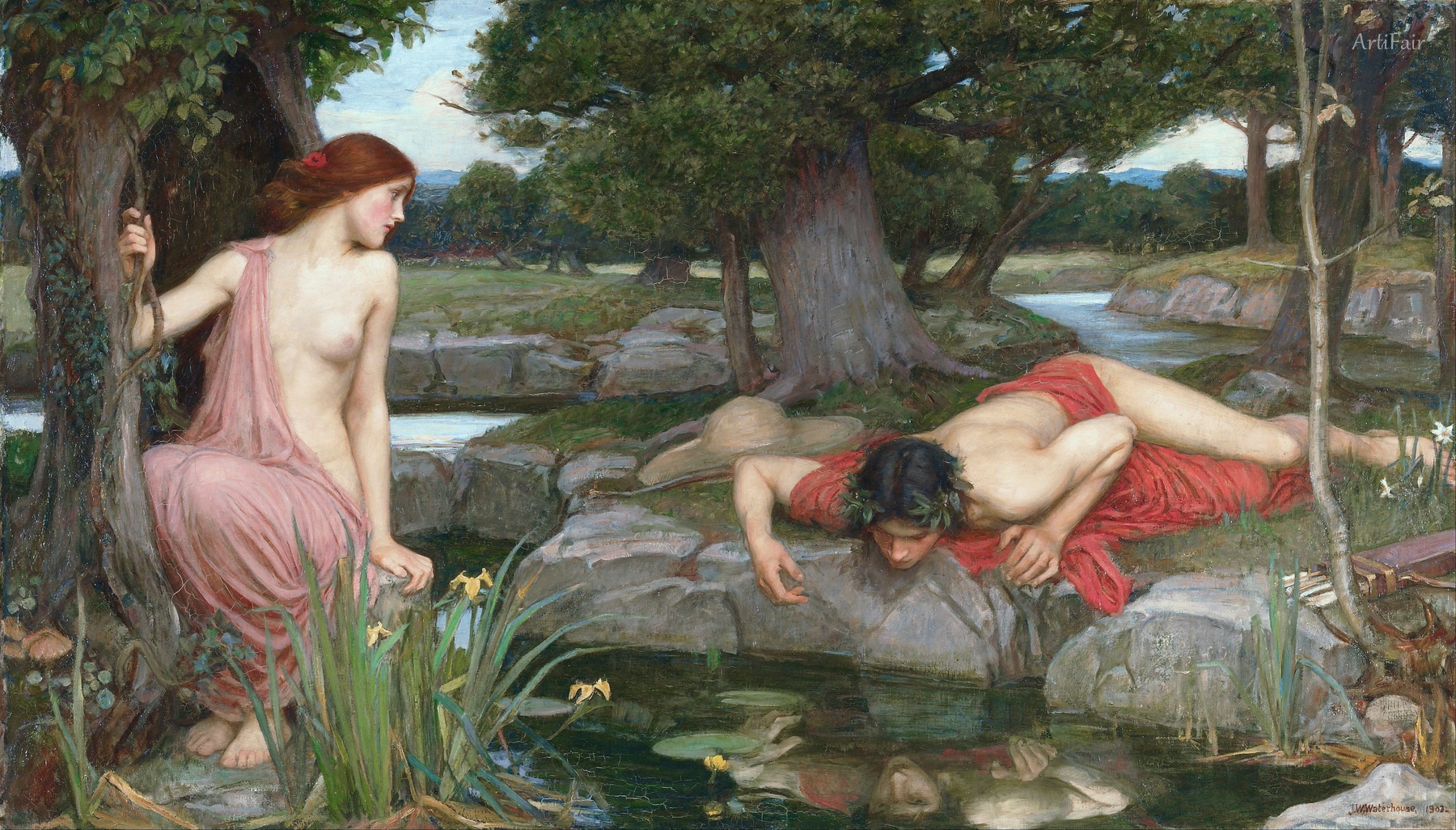
Art Appreciation
A tender interplay of myth and emotion manifests in this exquisite painting. To the left, Echo is depicted in a soft and contemplative pose, her bare skin radiant under dappled sunlight. She seems drawn to Narcissus, who lies oblivious beside a tranquil pond. Waterhouse’s brushwork beautifully emphasizes the delicate, flowing lines of her ancient Greek garment, which drapes effortlessly, evoking a sense of both femininity and vulnerability. The lush greenery surrounding the scene acts almost as a silent witness, framing their connection yet simultaneously highlighting the separation brought forth by Narcissus's infatuation with his own reflection. The rippling water mirrors his image, capturing the essence of unattainable beauty, while the wildflowers oriented toward his gaze symbolize the fleeting nature of desire.
However, there’s an element of foreboding; the deeper waters conceal not just Narcissus but tragedy. The colors—a harmonious blend of soft pastels and rich earthy tones—imbue the scene with a serene yet melancholic aura. Each brushstroke conveys a quiet yearning, an exploration of unreciprocated love and obsession. Waterhouse encapsulates the pain of longing, inviting viewers to reflect on their own experiences of desire and loss. The mythical narrative, deeply rooted in Greek lore, finds resonance with audiences, transcending time and reminding us of the perils of vanity and selfish love.